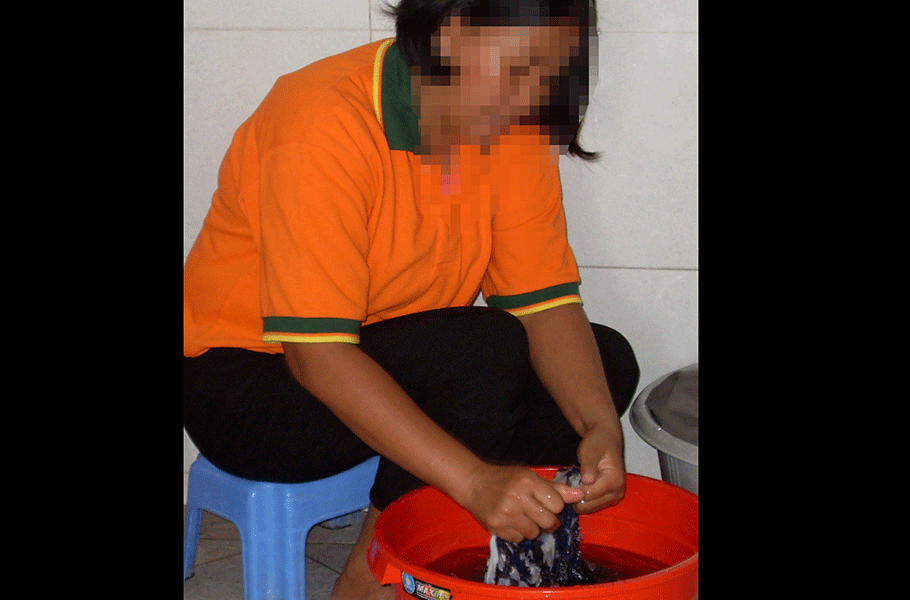
Abu Dhabi: Indonesian housemaids currently working in the UAE are free to decide whether they want to continue in their jobs or return home, a senior Indonesian diplomat told Gulf News on Tuesday.
Those going on vacation, however, will have to report to the embassy, which will check their working conditions, Wisnu Suryo Hutomo, chargé d’affaires at the Indonesian Embassy in Abu Dhabi, said.
If a housemaid is getting a minimum of Dh1,500 as a monthly salary and is being treated well by the employer, the embassy will issue a letter to the housemaid, which she will have to produce at the airport in Indonesia at the time of departure [for the UAE], Hutomo said.
The Indonesian Embassy in the UAE implemented a moratorium on the recruitment of housemaids to the UAE in October 2013.
The announcement banning Indonesian housemaids working abroad made by the Indonesian President Joko ‘Jokowi’ Widodo to uphold the “self-esteem and dignity” of Indonesia was not out of the blue, Hutomo clarified. The decision was the culmination of many years of effort in this regard.
In 2004, the Indonesian government decided to ban sending housemaids to countries with whom Indonesia does not have a bilateral agreement or Memorandum of Understanding for the protection of domestic workers. Around three years ago, Indonesia’s Ministry of Manpower drew up a plan that would work towards stopping the employment of housemaids abroad by 2017.
Of around 85,000 Indonesians living in the UAE, almost 80,000 of them are housemaids, Hutomo said.
Indonesia’s decision to restrict the deployment of housemaids to the UAE will affect a market that already faces a shortage of domestic workers due to restrictions introduced by other labour-exporting countries such as the Philippines, India and Ethiopia.
The Philippines stopped sending housemaids to the UAE from June 2014 citing conflicting recruitment rules with the UAE. The issue arose when the Ministry of Interior introduced a unified contract for domestic workers leading to the suspension of various embassies’ role in verifying and attesting contracts, including the Philippines.
The Ethiopian government in 2012 banned women from coming to the UAE to work as maids following a series of complaints about abuse.
Indian housemaids in the UAE decreased considerably after the the Indian embassy introduced stringent recruitment conditions in February 2008. The embassy increased the minimum wage for Indian housemaids from Dh600 to Dh1,100. Conditions also demand that the minimum monthly income of the employer be Dh10,000, a security deposit or bank guarantee for Dh9,200 must be made (if the housemaid is recruited directly from India) and there must be an Indian guarantor. The prospective housemaid also has to be above 30 years old and she hasto be given a mobile phone within two weeks of her arrival in the UAE. The employer and the housemaid have to visit the embassy or consulate to register her mobile phone number and address within two weeks.
Despite Indonesia’s decision, unscrupulous recruitment agents have been bringing in Indonesian women to the UAE illegally and even sending them to neighbouring countries in the region, said Hutomo. “It is a multi-million dollar business. Although the Indonesian Government has been trying its best to stop this menace, it has not been fully successful.”
“We have already suspended [the licence of] 100 recruitment agencies in Indonesia for illegal recruitment.”
The agents, Hutomo said, exploit the flexible visa regulations of the UAE. “Most of the women come here on a tourist visa and when they run into trouble, they approach the embassy.”
Around 100 Indonesian women approach the embassy every month, he said, and the embassy deports them with the help of local authorities.
“My information suggests that the agents charge Dh17,000-18,000 from an employer for supplying an Indonesian housemaid. When the process was legal, the cost was around Dh11,000-Dh 12,000.”
However, Indonesia has not placed any restrictions on the recruitment of male domestic workers.
“We do not have any plan to ban male domestic workers. Because they are strong enough to deal with any problem. But women workers are vulnerable to abuse and exploitation,” the diplomat said.







